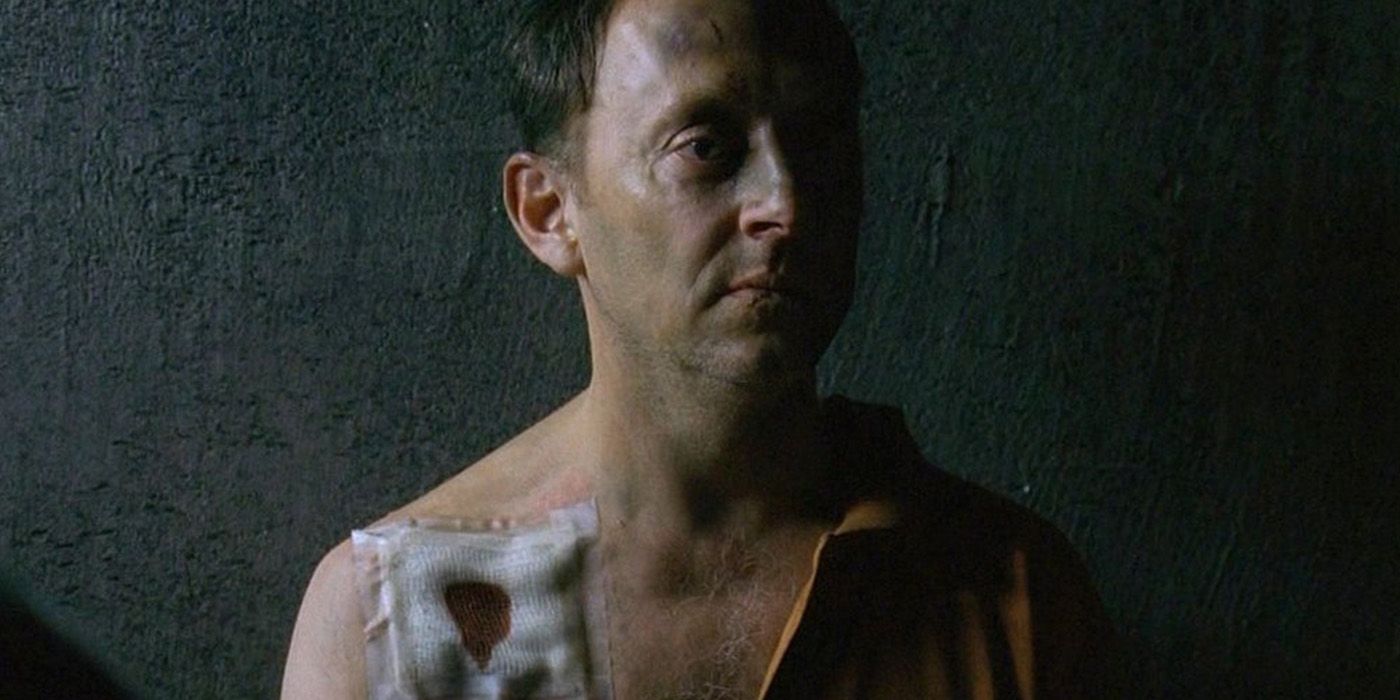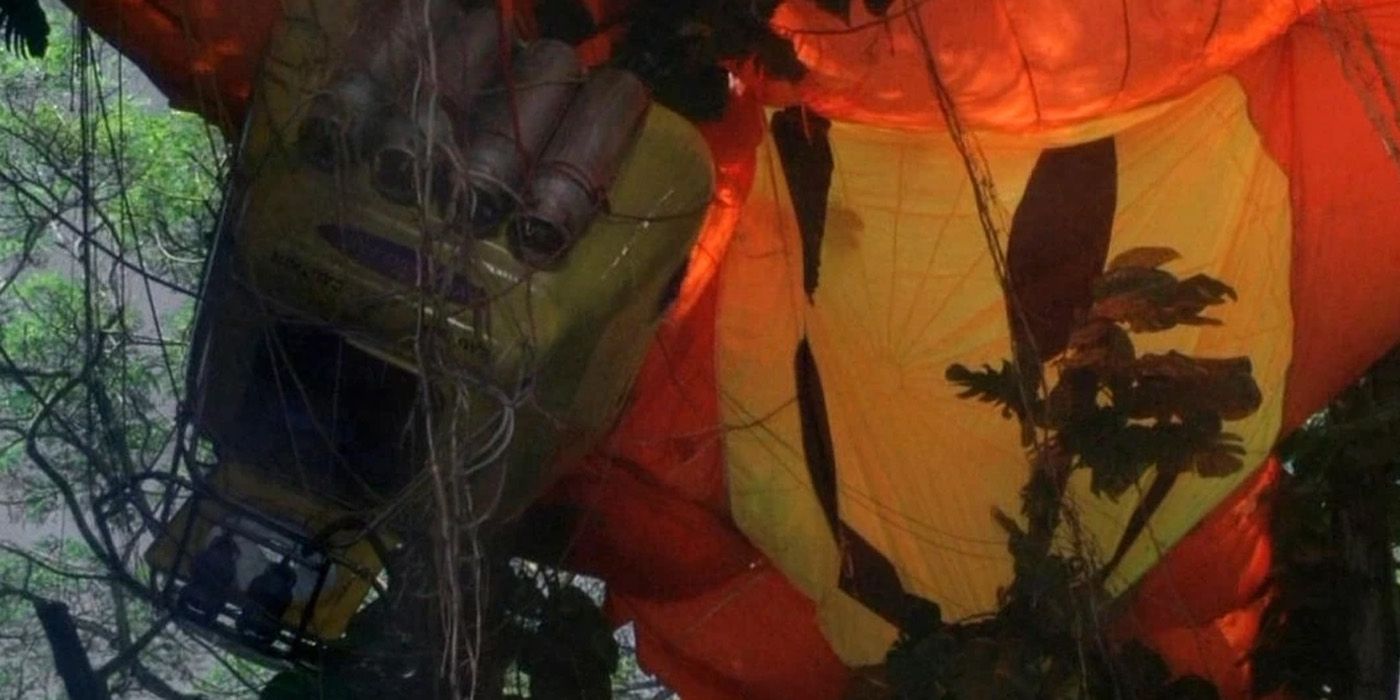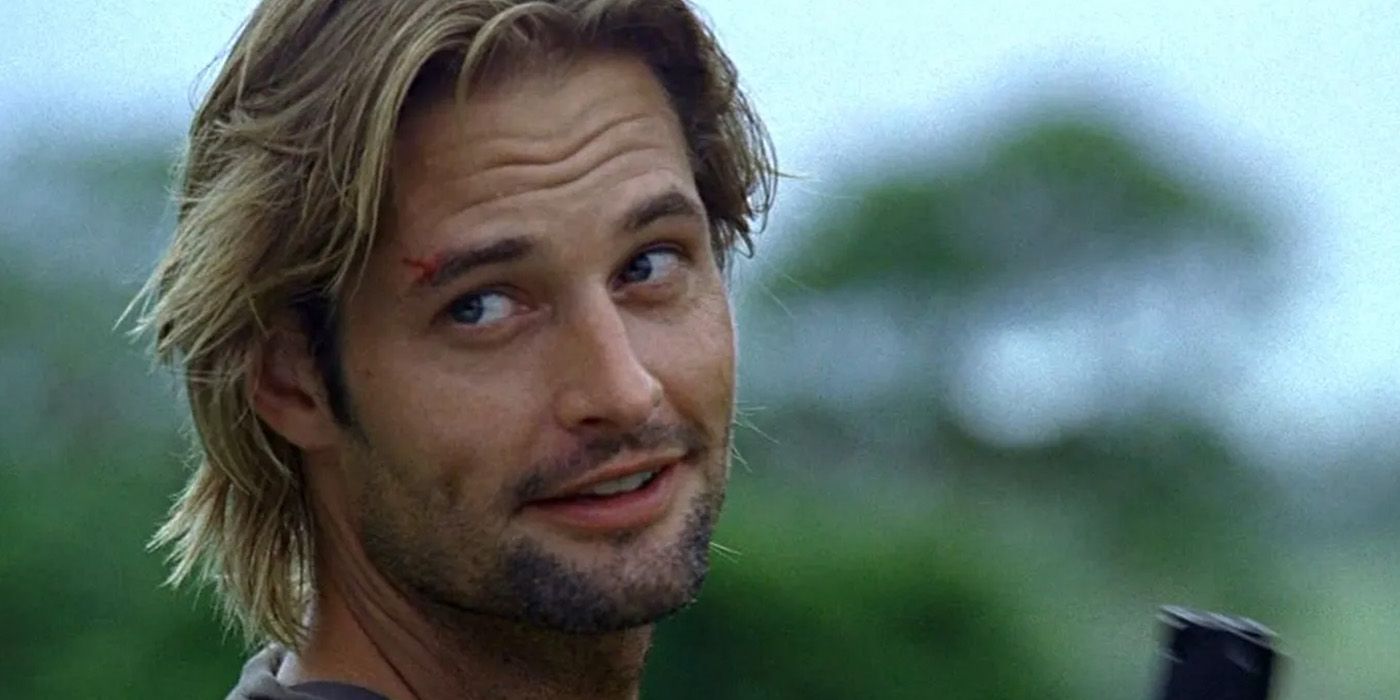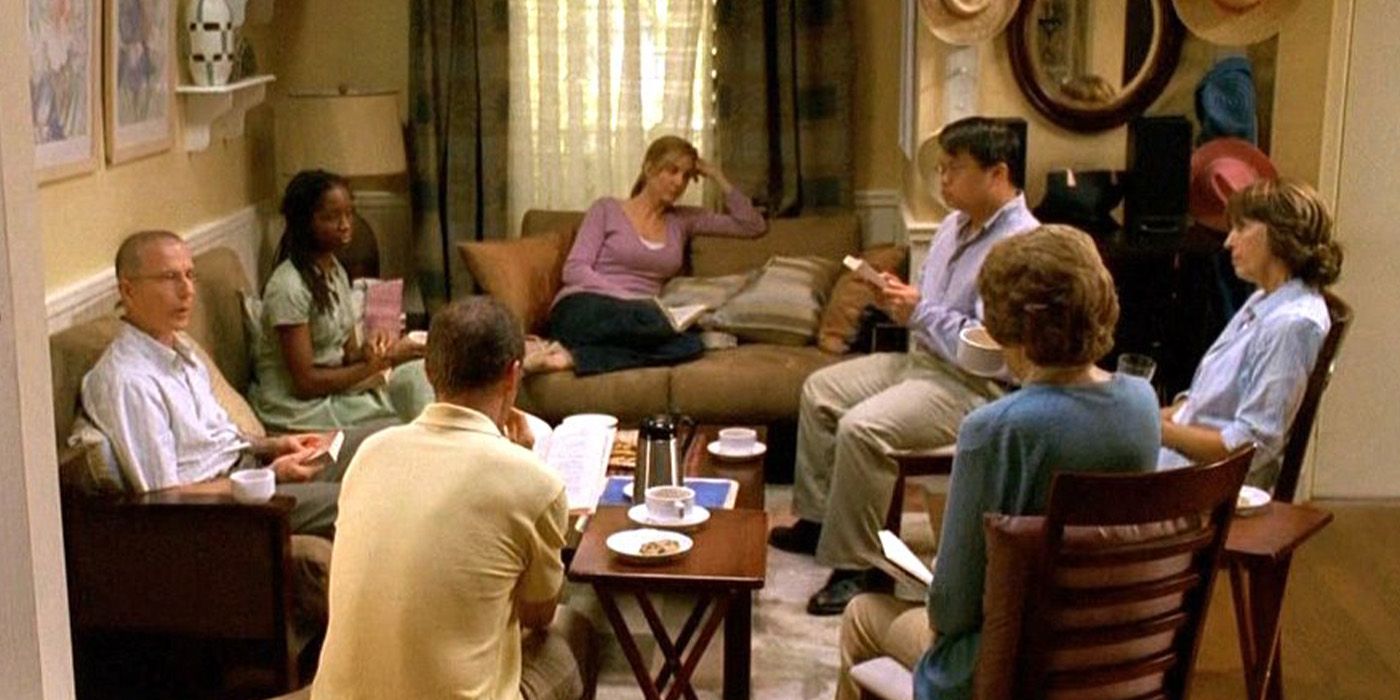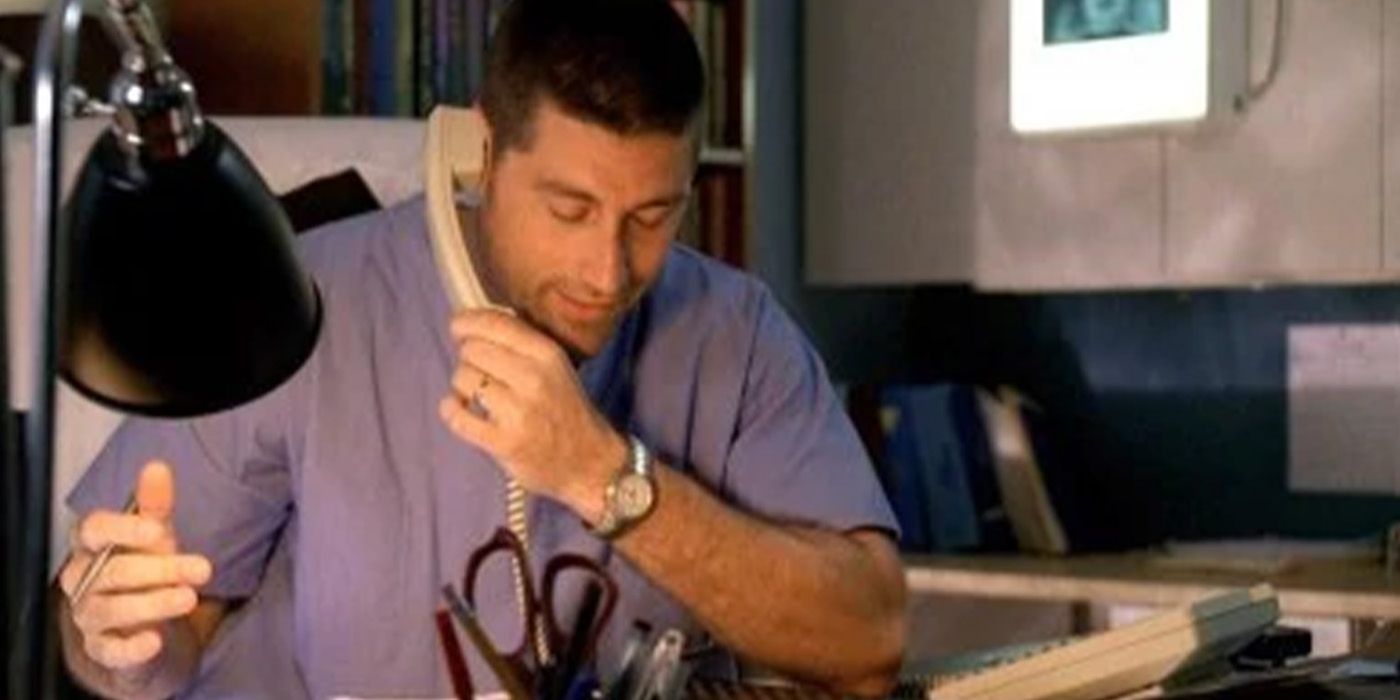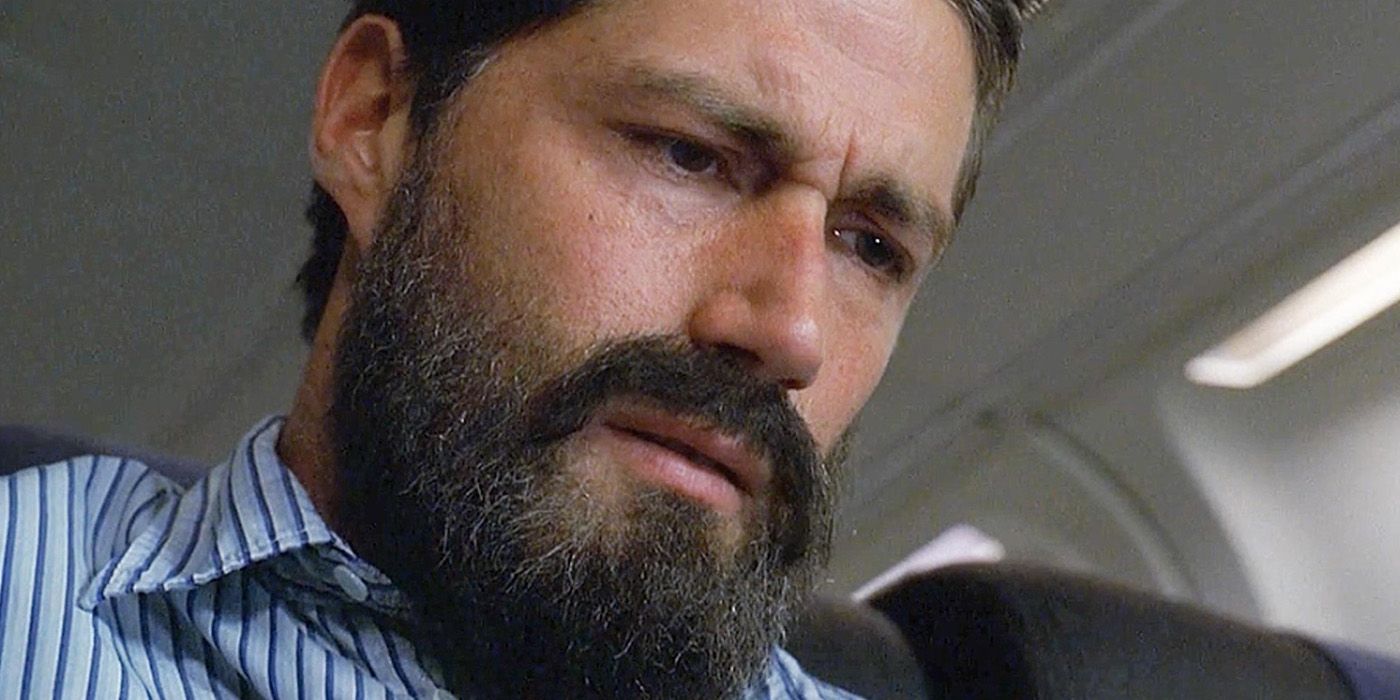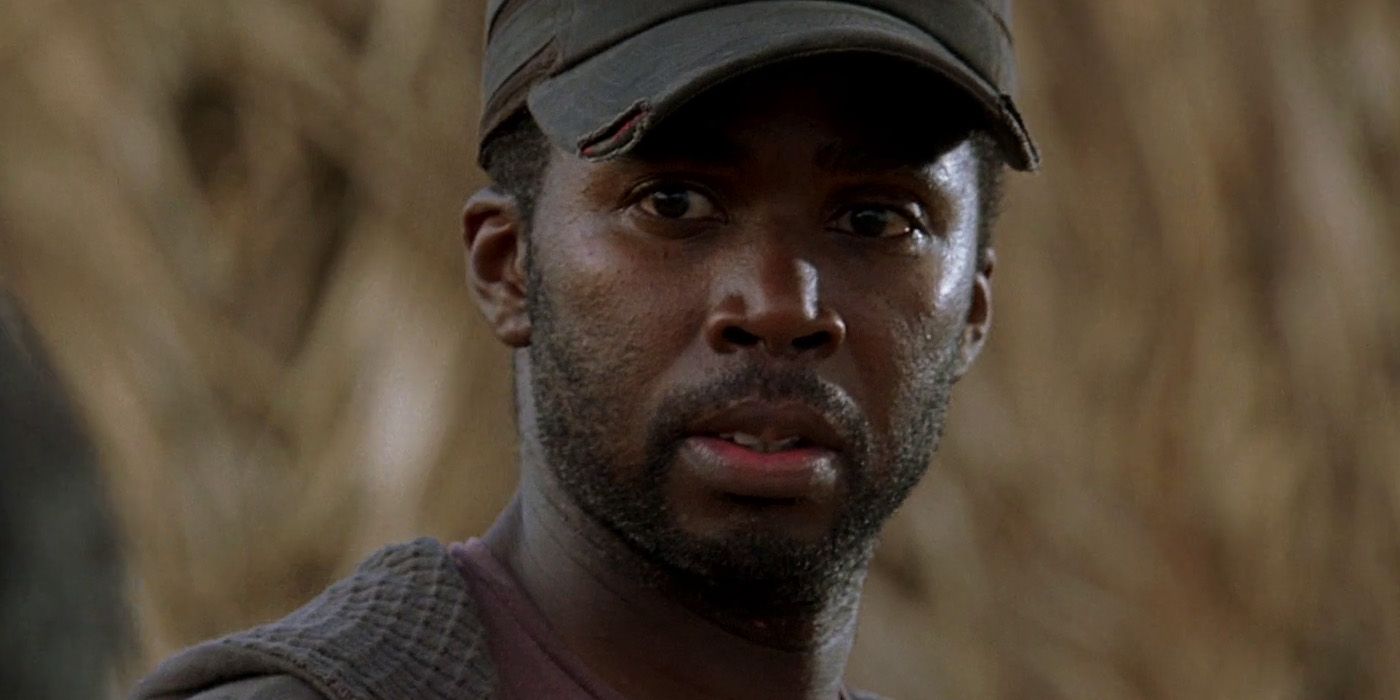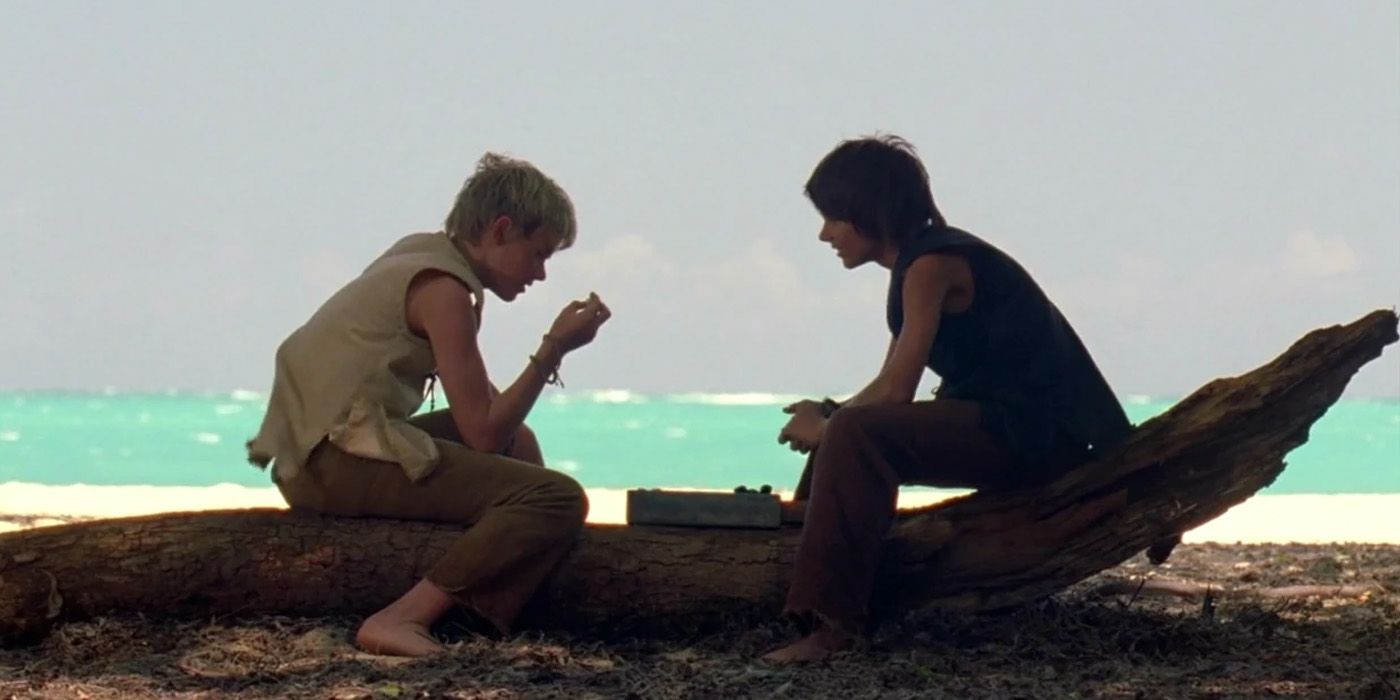Every Stephen King Easter Egg & Reference Explained
Lost hid a wealth of Stephen King Easter eggs and references throughout the TV show. The connection between King’s works and the Lost TV series’ storyline has been well-known since the series aired, especially since Lost creators Damon Lindelof, J.J. Abrams, and producer Carlton Cuse have stated that King’s 1978 novel, “The Stand,” was a staple in the long-running show’s writers’ room. King has also referenced Lost in several of his novels, even mentioning Lost many times in his Entertainment Weekly column, “The Pop of King,” which ran from 2003 to 2011.
After King expressed his adoration for the ABC series, many speculated about his potential contribution to Lost since several characters took inspiration from those written by King, and the storytelling techniques that the show used were drawn directly from King’s writing style. Despite the speculation, any rumors of King’s involvement in Lost have since been debunked. Even so, there were several references throughout Lost’s six seasons that point to the horror writer’s works.
Dostoevsky Or King
During Lost season 2, episode 15, “Maternity Leave,” the survivors of Oceanic Flight 815 meet Benjamin Linus (Michael Emerson) for the first time, then going by the stolen name, Henry Gale. During Ben’s imprisonment in the Swan Station’s armory, Locke (Terry O’Quinn) brings Ben a copy of Dostoevsky’s The Brothers Karamazov, only to be questioned whether any Stephen King novels would be available instead. This was the first instance of an overt mention to King during Lost, which would also get explained even further during Lost season 3 through the TV shows’ trademark flashback sequences.
Nozz-A-La Cola
Two episodes later, during Lost season 2, episode 17, “Lockdown,” Ben, still using the name Henry Gale, sends Sayid (Naveen Andrews), Ana Lucia Cortez (Michelle Rodriguez), and Charlie (Dominic Monaghan) on a journey through the jungle to find the hot-air balloon he supposedly traveled to the Island in. Aside from a giant smiley face, the balloon had decals reading “Minnesota Metallurgy & Mining Co.” along with sponsorship adverts for Mr. Cluck’s Chicken Shack and Nozz-A-La Cola. This blink-and-you’ll-miss-it moment references a fictional brand of root beer-like soda from Stephen King’s novel “The Dark Tower,” the story of which inspired a lot of Lost’s overarching themes, as well as Stephen King’s TV miniseries, “Kingdom Hospital.”
Hoss
When Lost started airing in 2004, Sawyer (Josh Holloway) was billed as an antagonist among the survivors. His selfish tendencies and abrasive personality made him a difficult person to connect to, with one perfect example of this being in his relentless nicknaming of the other characters. Throughout the series, Sawyer referred to the group’s leader, Jack (Matthew Fox), as “Hoss.” This term was inspired by King’s serial novel, “The Green Mile,” in which a nursing home employee, Brad Dolan, also frequently uses the term. In King’s novel, Dolan is a malicious and unpleasant character, something which translated into Sawyer during Lost’s first few seasons.
Carrie
In Lost season 3’s premiere episode, “A Tale of Two Cities,” Ben’s previous mention of Stephen King during season 2 was finally explained through flashbacks that took place before Ben’s imprisonment. “A Tale of Two Cities” opens on a book club, hosted by Juliet (Elizabeth Mitchell) in the Others’ village on the Island, whose book of the week is none other than King’s 1974 novel, “Carrie.” Juliet claims that “Carrie” is one of her all-time favorite books, with a different edition of the novel even appearing on Juliet’s sister’s nightstand during Lost season 3, episode 7, “Not in Portland.” Funnily enough, by the end of Lost season 3, Juliet has become similar to the character of Carrie from the point of view of the Others, with her actions throughout the season causing the deaths of 13 of their own.
Hearts In Atlantis
“A Tale of Two Cities” also features flashbacks to Jack’s life before the Island, investigating his paranoia and jealousy after his divorce from Sarah (Julie Bowen). Flashbacks give viewers glimpses into Jack’s office at the hospital, in which eagle-eyed viewers were able to spot a copy of King’s 1999 novel series, “Hearts in Atlantis.” This particular novel might have a special significance for Jack, as the stories detail King’s views on the Baby Boomer generation’s inability to live up to its promises. Throughout the series, Jack feels as though he can’t live up to his father, Christian Shephard (John Terry), even though it’s his father who has, in fact, continuously failed him.
Ben’s Rabbit
A few episodes later, during Lost season 3, episode 4, “Every Man for Himself,” a reference to Stephen King pops up again in the form of a white rabbit with the number 8 painted on its back. Ben used the rabbit to imply that he’d attached an explosive pacemaker to Sawyer’s heart, apparently killing the rabbit with the same device before revealing it was all a ruse. The rabbit is a reference to King’s 2000 memoir, “On Writing: A Memoir of the Craft,” in which King asks the reader to partake in writing exercises. In one, King asks the reader to think of the image of a rabbit in a cage with the number 8 written on its back (perhaps coincidentally one of Lost’s dangerous Numbers), suggesting that the writer and the reader will see different rabbits, but both will see the number 8 and be able to communicate over their shared connection.
The Dark Tower
Lost’s season 3 finale was explosive for many reasons, with Charlie’s unfortunate death, Jack’s mission to get everyone safely off the Island, and the first flash-forwards of the series all being featured. In one moment, the future version of Jack reads a newspaper clipping that contains readable words including “Ted,” “the Tower,” and “beam,” all of which are references to Stephen King’s long-running novel series, “The Dark Tower,” as well as a nod to “Hearts in Atlantis.” “Ted” refers to Ted Brautigan, a central character throughout “Hearts in Atlantis” who also appears in the latter books in “The Dark Tower” series. In King’s mythology, “The Dark Tower’s” tower (held together by beams) is the point where all times and all worlds meet. Perhaps another reference to this comes during the final Island-set scenes of the episode which take place at the Island’s Radio Tower, where worlds collide for Jack and the other survivors as they finally make contact with the freighter.
Jack Nicholson
Lost season 4, episode 8, “Meet Kevin Johnson,” featured the return of Michael Dawson (Harold Perrineau) as a crew member onboard the freighter. At one point, Minkowski (Fisher Stevens) tells Michael that he has a call from the mainland, interrupting Michael’s bouncing a ball against the wall. Minkowski suggests that Michael could have cabin fever akin to “Nicholson,” referring to legendary actor Jack Nicholson. Nicholson portrayed Jack Torrance in the 1980 film adaptation of Stephen King’s third novel, “The Shining,” which sees Torrance lose his grip on reality and descend into insanity while caretaking at the Overlook Hotel, experiencing the same fate as many of the freighter’s crew, including Michael himself.
The Turtle
One of the final episodes of Lost also features a short tease to the works of Stephen King, namely a turtle that appears during Lost season 6, episode 15, “Across the Sea.” In the final edition of the Official Lost Podcast released on May 14, 2010, Lost’s creators mentioned that the turtle in “Across the Sea” referenced “The Dark Tower,” which prominently features turtles as a theme, and also King’s novel, “IT.” While this was a very subtle hint to the author, it came as no surprise that Lindelof and Abrams wanted to get another King tease into the series before it finally ended.
There are several more parallels between the works of Stephen King and Lost. This includes the Man in Black, the name of two separate characters featured in Lost and in “The Dark Tower,” Locke’s obsession over the mysterious Hatch relating to the storyline of “The Tommyknockers,” and the plot to “Duma Key,” which sees characters brought to a strange island by supernatural forces. King’s influence over Lost was evident from the get-go, if only through the in-depth character studies throughout the series and the intense stories created in both.




